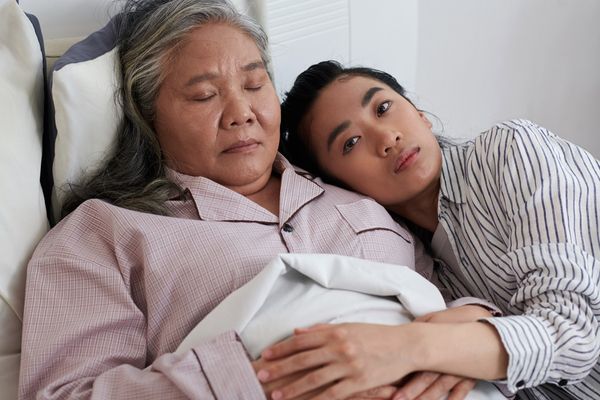
At Nova Home Care Indiana, we understand the dedication and compassion family caregivers provide to their loved ones. For many Indiana caregivers, especially parents who are caring for their children or those who care for a spouse, new changes to the Indiana Medicaid rules may be presenting fresh challenges that threaten to disrupt access to crucial care. As an established home care agency with a long history of supporting family caregivers, we’re here to help you understand the changes to Indiana Medicaid regulations and what family caregivers can do to keep their benefits.
How Are Indiana Medicaid Rules Changing?
Jump to:
- Medicaid Redetermination
- Waiver Restructuring
- Options For Family Caregivers
- Continue To Get Paid As A Caregiver With Nova Home Care
1. Medicaid Redetermination
What Is Medicaid Redetermination In Indiana?
The term “Medicaid Redetermination” refers to the nationwide process of reassessing and re-evaluating individuals’ eligibility for Medicaid benefits as the states transition from the emergency measures introduced during the COVID-19 pandemic into a more “normal” state of affairs. There will be different rules for Medicaid redetermination by state, including Indiana.
During the COVID-19 federal public health emergency, Indiana Medicaid members retained uninterrupted coverage due to federal mandates. However, the latest federal spending bill terminated these Medicaid coverage protections, prompting Indiana Medicaid to resume normal operations.
The eligibility redetermination process started in April 2023 but may have only affected you or a loved one more recently. Many redeterminations are conducted automatically using available state data. In certain cases, the state of Indiana will request additional information from members, such as current address, employment status, income, age, and family size, to complete the process. In many cases, people enrolled in Medicaid may find themselves failing to meet the Medicaid redetermination requirements and becoming disqualified from coverage, sometimes through administrative error or failure to provide updated information.
Who Is Affected By Medicaid Redetermination?
Technically, anyone enrolled in one of the Indiana Medicaid Plans (Healthy Indiana Plan, Hoosier Health Wise, and Hoosier Care Connect) could be affected. However, the state estimates that approximately 25% of current beneficiaries, roughly 500,000 people, will be impacted. It is crucial for these individuals to stay informed and proactive throughout this redetermination process to ensure they continue to have access to essential healthcare services.
This also affects Indiana caregivers employed through Medicaid benefits if the person that they care for loses access to Medicaid.
What Can I Do?
It’s essential for anyone who is or thinks they may be affected by Medicaid reassessments in Indiana to first update their information with the state by taking the following steps:
- Visit FSSABenefits.IN.gov
- Scroll down to the blue “Manage Your Benefits” section
- Select either “Sign in to my account” or “Create account”
- Verify that your contact information is up to date
- For assistance, call 1-800-403-0864
Family caregivers in Indiana may face additional challenges even if the person they care for stays on Medicaid. This is because the restructuring of Medicaid waivers can change who can be a paid caregiver under Indiana’s Medicaid rules.
2. Waiver Restructuring
As of July 1, 2024, Indiana is implementing significant updates to its Medicaid and Medicaid Waiver programs that will impact many family caregivers. The Family and Social Services Administration (FSSA) has secured approval from the Centers for Medicare and Medicaid Services (CMS) for amendments to several waivers, introducing the new Pathways for Aging, Community Integration and Habilitation (CIH), Family Supports (FSW), Traumatic Brain Injury (TBI), and Health and Wellness (H&W) waivers, which is replacing the Aged & Disabled (A&D) waiver.
Key Changes For Family Caregivers
One of the most impactful changes involves the discontinuation of payments to parents of minor children and spouses (also known as Legally Responsible Individuals, or LRIs) for providing attendant care under the H&W and TBI waivers.
If you were a caregiver for your spouse, or for your child of minority age, who was paid through Medicaid prior to the waiver restructuring, you might lose your benefits.
The state has advised these caregivers to transition to Indiana’s Structured Family Caregiving (SFC) program, which allows LRIs to be paid as caregivers for their spouses or children. However, SFC offers a limited daily benefit compared to the previous system’s hourly rate, which can impact family caregivers who look after a loved one who needs round-the-clock care.
Recent Clarifications On Medicaid Waiver Changes
A recent FAQ update (June 18, 2024) from the state clarifies several points regarding Home Health Services paid through Medicaid Prior Authorization (PA):
- Concurrent Services: A Medicaid recipient can receive both Structured Family Caregiving and PA for Home Health services on the same day, but not simultaneously, and not from the same caregiver.
- Principal Caregiver Rules: An individual cannot be both the paid principal caregiver for Structured Family Caregiving and paid to provide PA for Home Health services for the same recipient. The primary caregiver must be unavailable for PA Home Health services eligibility.
- Household Members As Home Health Aides: If one member of a household is the paid principal caregiver, another qualified household member can serve as a Home Health Aide, provided the services are not delivered at the same time.
- Incorrect Provider Information: If a home health provider suggests a caregiver can be both a Home Health Aide and the principal caregiver under Structured Family Caregiving, the caregiver must inform the provider to seek an alternative aide or nurse.
3. Options For Indiana Family Caregivers
As Indiana rolls out the changes to its Medicaid rules, family caregivers must take action. Families should collaborate with their care managers to:
- Obtain attendant care from non-LRI individuals.
- Continue receiving paid support as an LRI through the SFC program. Note that legal guardians of adults can provide up to 40 hours of attendant care per week.
For family caregivers who wish to continue earning an income as home care aides or seek alternative non-LRI caregivers for their loved ones, Nova Home Care Indiana may be able to help.
4. Continue To Get Paid As A Caregiver With Nova Home Care
Nova Home Care Indiana remains committed to supporting families through these challenging changes. We understand and value the hard work and dedication of family caregivers and the key role that their income—as well as their caring presence—plays in supporting their loved ones.
As a long-established care agency in Indiana, Nova Home Care offers a range of in-home services to aging adults and physically disabled children in the state. We have years of experience in providing fulfilling, rewarding roles to caregivers, matching clients with the best caregivers, and keeping families as close together as possible.
If you have questions about the new Medicaid rules and:
- Have had your paid position in a Medicaid-funded care agency disrupted and wish to continue working as a paid caregiver
- Need to find a non-LRI caregiver for your spouse or child
Then contact Nova Home Care today for personalized advice and support tailored to your needs. We can:
- Offer paid family caregivers the chance to continue their career with a competitive salary, health insurance, vacation time, 401k plan, and other benefits.
- Discuss a care plan with a non-LRI for your loved one.
See our careers page for more information on salary, benefits, and requirements for a home care aide position with Nova Home Care Indiana.
At Nova Home Care, we are committed to helping you navigate these changes with compassion and expertise. We offer the ability to switch care agencies seamlessly, allowing you to continue working as a caregiver without disruption. Remember, your role as a caregiver is invaluable, and we’re here to help you every step of the way. Together, we can ensure the best possible care for your loved ones.


